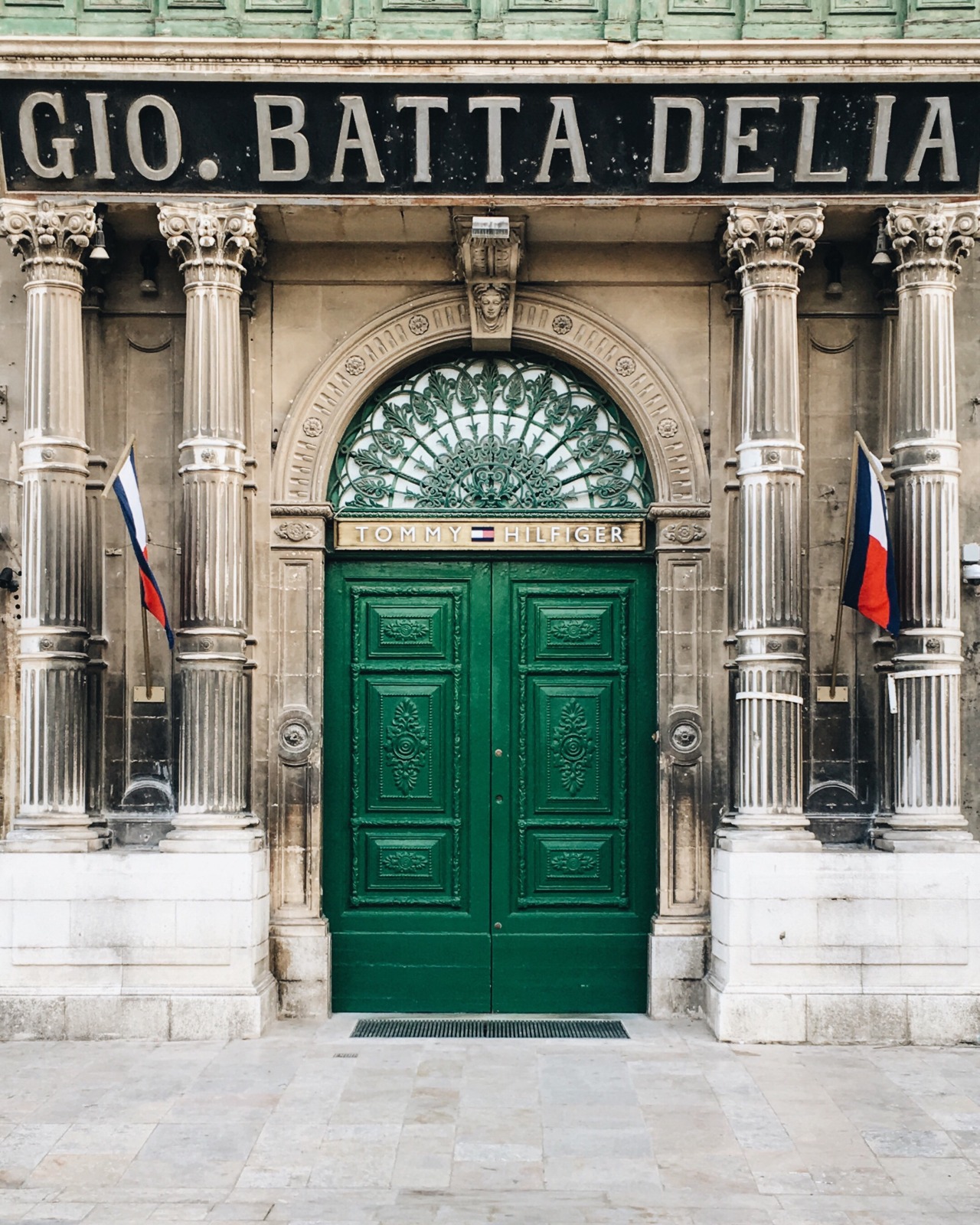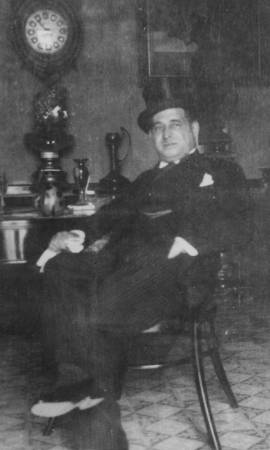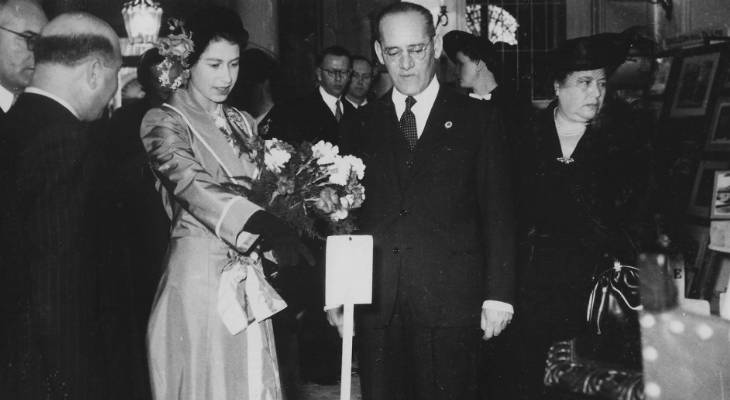Thousands of people walk down Republic Street in Valletta every day. But, few people know the history behind the Gio.Batta Delia sign, which has been there for the past 90 years. This company goes all the way back to 1901, when it was established by Giovanni Battista Delia. Now, four generations later, it is co-owned by the two brothers, Patrick and John Delia.

Gio. Batti Delia sign / MALTA DOORS
Speaking to WhosWho.mt, Patrick Delia explains the rich history of the company built by the Delia family, which has seen tremendous change over the past years. Giovanni Battista Delia, Mr Delia’s great grandfather, started out in furniture making more than a century ago. “He was very successful; he started his own business in his mid-20s and was able to export his own furniture abroad. He took part in many international exhibitions in London, Paris and Rome, where he even won many gold and silver medals for his artistic work.”

After having had five children by age 42, his wife had passed away. Because of this, he turned to his son, Jack, to take over the family legacy – Mr Delia’s grandfather. To this day, the family attributes Mr Battista Delia’s loss of appetite in continuing the business to his wife’s death. During the time, the business was at its best. From exhibiting furniture at the Malta Chamber of Commerce – attended and admired by the late Queen Elizabeth II, to having furniture at Benito Mussolini’s residence, the Batta-Delia company expanded its horizons successfully. At the time, in their factory-shop in Ta’ Xbiex, the family employed well over 100 carpenters, an impressive number in that period.

The late Queen Elizabeth II, before taking the crown, admiring Gio. Batta Delia furniture
The shift began in the 50s and 60s and turned the business from furniture makers into importers of household furnishing. “It was a time where the furniture industry in Malta was going through a transformation, because of machinery. This was something that the second generation did not want to pursue, as they wanted the traditional furniture to be made by hand,” Mr Delia remarked.
Eventually, in the 1970s, the business started specialising in the importation of fine ceramics, as well as introducing wedding lists to the islands, something which nowadays is almost rare. “At the time we were importing the best brands in Europe, and it did very well for a few years.”
Invariably, however, trends began to change. Business started to decline, and people started asking for cash gifts rather than personal wedding gifts. This, along with growing competition, put a halt on the company until it reached a point where their shop was not being utilised sustainably.
“In 2009, I took the decision to think with my head rather than my heart and decided to take a major risk and start reselling Tommy Hilfiger fashion. We kept the side business and a few brands to try and keep our traditional fine-gift business alive, even if we stopped for a period of time,” Mr Delia explains. He also notes that now, people are ready to spend money on a large tv or a very expensive phone but not on an expensive dinner set. “Phones are used on a daily basis, rather than once or twice a year.”
Asked further about the transition made by the company, he states that “it wasn’t easy to swallow”.
With a change of direction, however, and a view to carry on the family business, Mr Delia feels a sense of satisfaction in selling a product that took many hours to produce by hand: “I started listening to my heart again and went back to our roots. And so, we re-started selling fine china,” Mr Delia explained.
Having years of experience, Mr Delia’s advice would be that even if an entrepreneur has a love for a certain type of business, one must ask whether they are making money or not. “That is when you must take a firm decision to be bold enough and to change your ways. If you can combine both passion and business, then well and good but ultimately one must be bold to survive,” Mr Delia says.
Another lesson out of Mr Delia’s playbook is that as a business, one cannot linger on in decision-making for too long. “This is something that I learnt, to our detriment. When I would go abroad and return with ideas, the family would sometimes say that it is too modern for Malta, and we would have clashes. You don’t move forward as a business.”
The company has had four generations, but will there be a fifth? The future is uncertain, although, in Mr Delia’s opinion, he is hopeful that his daughter will one day follow in his footsteps. “We’re lucky enough to have our family history, but for such business, it requires a personal touch.”
Main Image:
